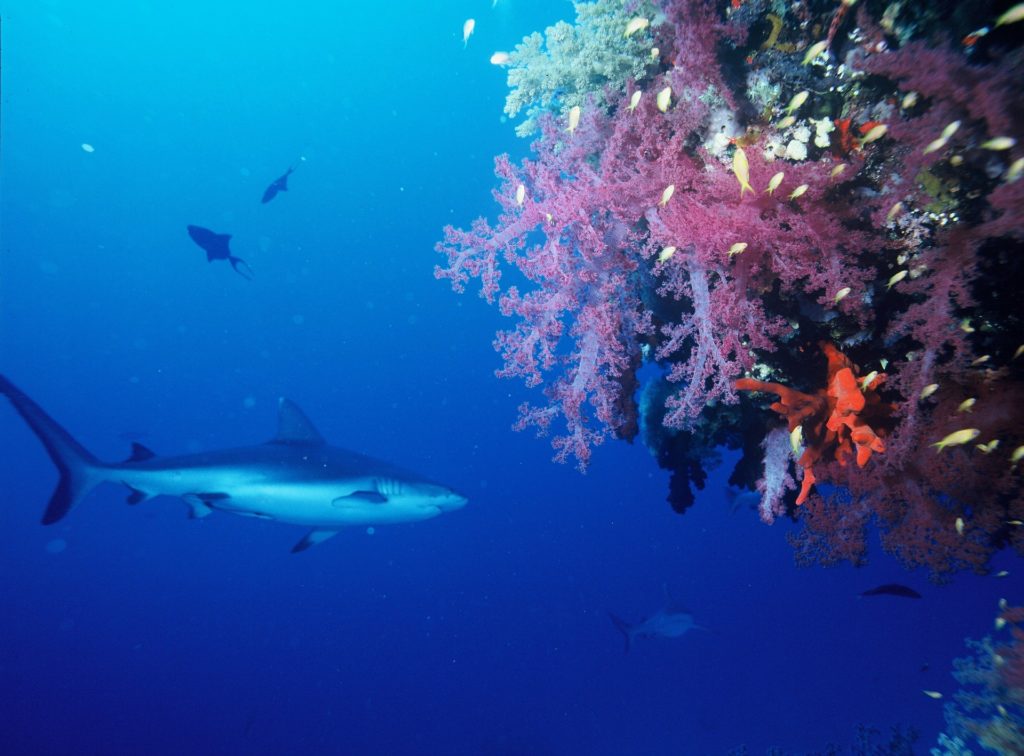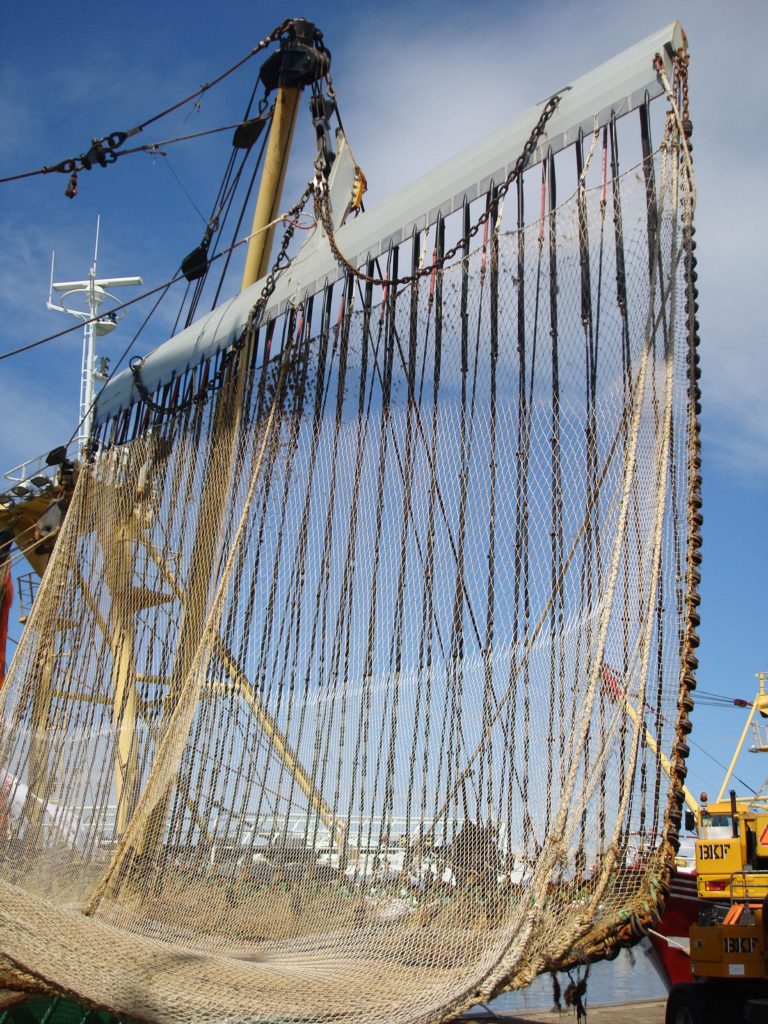O Partido para os Animais pede à todos que se oponham à catastrófica pesca elétrica (electrofishing)
No dia 21 de novembro, a Comissão Geral de Pescas do Parlamento Europeu votará na polêmica pesca elétrica. O Conselho Europeu de Ministros quer impor restrições a esta nova forma de pesca, no qual se utiliza eletricidade. O governo holandês expressou seu desagrado contra as restrições, pois fez um grande lobby para que a medida seja legalizada para este novo tipo de pesca. A deputada do Partido para os Animais, Anja Hazekamp, juntamente com cientistas e ONGs, faz todos os esforços para evitar a legalização de tal pratica. Afinal, a pesca elétrica implica riscos imprudentes para a vida marinha e ameaça o futuro de todos nós. “A pesca elétrica sustentável é atualmente um mito”, de acordo com Hazekamp. Hazekamp exige que todos assinem a petição contra a pesca elétrica.

A controversa pesca elétrica é um método de captura que usa fios elétricos que chegam até o fundo do mar e liberam pulsos elétricos. Isso faz com que os peixes saiam do fundo do mar, e assim, possam ser pegos pela rede de arrasto. Tecnicamente falando, a pesca elétrica é proibida na União Europeia, mas até agora, os lobistas estão a convencer a Comissão Europeia a para permitir a pesca com pulso elétrico em escala limitada.
A Holanda quer ir ainda mais longe e deseja a permissão da pesca de pulso elétrico ilimitada como um método de pesca “convencional”. O governo holandês e o lobby da pesca argumentam que a pesca com pulso elétrico é sustentável e favorável aos peixes. Eles consistentemente comparam a pesca do pulso com métodos de pesca clássicos, o que resulta em uma visão enganosa e causa aspectos negativos que são esquecidos. Testes neste novo método indicaram que a pesca elétrica causa sérios danos e a morte de peixes. Além disso, esse método apresenta um grande risco para o ecossistema marinho. A exposição a longo prazo à eletricidade de carga leve poderia, por exemplo, alterar a composição química do fundo do mar e afetar a vida deste habitat. Muitas espécies de peixes são sensíveis à eletricidade: os tubarões e as raias usam este tipo de carga elétrica quando estão a caçar.
Desertificação dos oceanos
Outro risco é que – devido aos equipamentos usados para a pesca elétrica serem mais leves – pescadores podem alcançar áreas que anteriormente eram deixadas em paz. Isso significa que nossas águas estão ainda mais ameaçadas pela pesca excessiva. Isso, apesar do fato de que anteriormente as Nações Unidas advertiram que não haverá nenhuma vida marinha em 2050 se continuarmos a pescar dessa maneira. Neste relatório, os especialistas concluíram que o desastre da vida marinha só pode ser evitado se os governos começarem a reduzir os subsídios para as frotas de pesca e se os peixes tiverem mais espaço nos oceanos, por exemplo, a criação de zonas protegidas. Dessa forma, os ecossistemas e as espécies de peixes que estão de alguma maneira ameaçadas realmente terão a chance de se recuperarem.

A pesca holandesa é parcialmente responsável pela estrutural pesca excessiva nas águas europeias. Não menos que 88% das espécies de peixes são vítimas da sobrepesca, e provavelmente, 30% não poderão se recuperar. O Partido para os Animais acredita que as formas destrutivas de pesca (elétricas ou não) devem ser banidas. Possíveis métodos de pesca alternativas só podem ser permitidas quando cumprirem com critérios rígidos de sustentabilidade. O bem-estar dos animais é um princípio fundamental nisso.
Assine a petição
A deputada do Partido para os Animais, Anja Hazekamp diz: “A pesca elétrica tem efeitos desastrosos em todas as vulneráveis flora e fauna submarinas. Este método torna a pesca possível em uma escala ainda maior, enquanto o que realmente deveríamos fazer é reduzir o setor pesqueiro. As populações de peixes na Europa diminuíram de tal forma que os atuais esforços da indústria da pesca não são mais rentáveis. Em vez de permitir que as populações de peixes aumentem novamente, como os cientistas recomendam, o setor pesqueiro decidiu esgotar as reservas de peixes restantes de qualquer maneira possível. A pesca elétrica está a transformar o nosso oceano em um cemitério e devemos fazer tudo o que estiver ao nosso alcance para se opor a isso “.
Hazekamp, juntamente com um grupo de cientistas e ONGs, pede a todos que assinem a petição contra a pesca do pulso. Mais de 55 mil pessoas já assinaram a petição.
On the 21st of November, the General Fisheries Commission of the European Parliament will vote on controversial pulse fishing, also known as electrofishing. The European Council of Ministers wants to impose restrictions on this new way of fishing, which uses electricity. The Dutch government expressed its displeasure against the restrictions because it lobbied to a great extent to fully legalise pulse fishing. The Party for the Animals’ MEP Anja Hazekamp, together with scientists and NGOs, makes every effort to prevent full legalisation. After all, electrofishing entails imprudent risks for marine life and will threaten the future of us all. “Sustainable (pulse) fishing is currently a myth,” according to Hazekamp. Hazekamp calls on everybody to sign the petition against pulse fishing.

Controversial electric pulse fishing is a catching method that uses electric wires that are pulled across the seabed and release electric pulses. It causes fish to jump up from the seabed so that they can be caught in the trawling net. Technically speaking, electrofishing is prohibited in the European Union but until now, lobbyists have time and again managed to convince the European Commission to permit electric pulse fishing on a limited scale.
The Netherlands wants to go even further now and allow unlimited electric pulse fishing as a ‘conventional’ fishing method. The Dutch government and fishing lobby argue that electric pulse fishing is sustainable and fish-friendly. They consistently compare pulse fishing with classical fishing methods, which gives a misleading view and causes negative aspects to be forgotten. Testing on pulse fishing revealed that this method causes serious damage and the death of fish. Additionally, this method presents a great risk for the marine ecosystem. Long-term exposure to light electricity could, for example, change the chemical composition of the seabed and affect the seabed life. Many fish species are sensitive to electricity: sharks and rays use it when hunting for food.
Desertification of the oceans
Another risk is that – because of the lighter fishing gear that can be used for pulse fishing – they can fish in areas that were previously left alone. This means that our waters are threatened to be overfished even more. This despite the fact that the United Nations previously warned that there won’t be any fish left by 2050 if we continue fishing this way. In that report, experts concluded that the fish disaster can only be avoided if governments start to cut subsidies for fishing fleets and if fish are given more space in oceans, for example by setting up protected zones. That way, the ecosystems and fish species that are in a bad way will really get the chance to recover.

Dutch fishery is partly responsible for the structural overfishing in European waters. No less than 88% of the species of fish is overfished and 30% will more than likely not be able to recover. The Party for the Animals believes that destructive forms of fishing (electric or not) must be banned. Possible alternative catching methods may only be permitted when they comply with strict sustainability criteria. Animal welfare is a key principle in this.
Sign the Petition
The Party for the Animals’ MEP Anja Hazekamp: “Pulse fishing has disastrous effects on all vulnerable underwater flora and fauna. This method makes fishing possible on an even larger scale while we should actually reduce the fishing industry. The fish populations in Europe have decreased to such extent that the current fishing industry efforts are no longer cost effective. Instead of allowing the fish populations to grow again, as scientists advise, the fishing industry decided to deplete the remaining fish reserves in any way possible. Pulse fishing is changing our ocean into a cemetery and we must do everything in our power to oppose to it.”
Hazekamp, together with a group of scientists and NGOs, calls on everybody to sign the petition against pulse fishing. More than 55,000 people have already signed the petition.